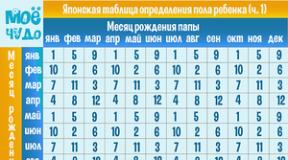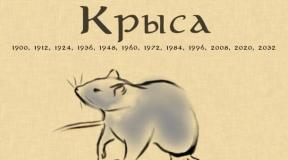1825 1855 events. Unified State Exam. Historical essay
1825-1855 called the “Nicholas era” or “the era of the Nikolaev reaction.” This period fell on the reign of Nicholas the First, whose entire policy was a consequence of the uprising that occurred on the day of the emperor’s accession to the throne.
The policy of Nicholas I's brother, Alexander, carried out after Patriotic War 1812, did not satisfy the demands of the nobles. Past officers organized an uprising on December 14, 1825. The consequence of this event was the creation in 1826 of the third branch of His Imperial Majesty's Own Chancellery Corps of Gendarmes. The whole country was divided into gendarmerie districts, in which they monitored the mood in the country. In the same year, the “cast iron charter” was issued - it was forbidden to publish books containing philosophical thoughts, the words “freedom” and “right”.
To instill in the people faith in a good king and the creation of an anti-revolutionary ideology, Count Uvarov created the theory of “official nationality”. This theory consisted of three components: “autocracy - Orthodoxy - nationality”. It became the official ideology of the country and the basis of teaching.
But the popular nature of the ideology did not solve the problem of serfdom. But the issue with the state peasants was resolved. In 1837-1841, the reform of the state village was carried out by Kiselev. The peasants had their own government, and also received their own plots, which could be passed on by inheritance. Schools and hospitals were built in peasant villages.
Even so, the landowner villages still remained.
Most of society was dependent on the owner, which held back industry. In addition, there was no opportunity to conduct scientific research and look for new ways to solve problems. The percentage of educated people was very small. All this led to collapse in the Crimean War of 1853-1856. All defeats were due to poor weapons and poor communication systems.
The reign of Nicholas the First contained the revolution in Russia, but did not solve a single important problem. Despite this, the first railways, the beginning of the industrial revolution occurred, a systematized set of laws of the empire was finally released, and theories of utopian socialism appeared.
This period dates back to the reign of Nicholas I. Significant events of this period are the financial reform of Kankrin, the publication of a new university charter, the adoption of the “theory of official nationality,” and the creation of the first railway in Russia.
In the process of codification of laws, a key role was played by M. Speransky, who supervised the codification of laws, prepared 47 volumes of the Complete Collection of Laws of the Russian Empire, and streamlined the activities of the state apparatus. 15 volumes of the Code of Laws of the Russian Empire were published.
In the process of strengthening the autocracy, Nicholas I played an important role, who created 6 departments of His Imperial Majesty’s own Chancellery, approved the “theory of official nationality,” and expanded the bureaucratic system.
The key process that marked the era of the reign of Nicholas I will be the strengthening of censorship and political investigation. A new “cast iron” charter was adopted, and the III Division of His Imperial Majesty’s Chancellery, headed by Benckendorff, was also created. All this was done due to the Decembrist uprising in order to prevent further similar uprisings.
An important event in foreign policy was the uprising in Poland. The reasons for this uprising were the violation of the Constitution, which was granted by Alexander I, and the consequence was the abolition of this Constitution by Nicholas I, who was afraid of such uprisings.
The next important process is the financial reform of Kankrin. The reasons for this reform were the need to finance wars and support noble land ownership, and the consequence was the introduction of the silver ruble into monetary circulation and the strengthening of the financial system for some time.
This period is assessed ambiguously. On the one hand, the economy developed, the industrial revolution began in Russia, railways began to be built, a monetary reform was carried out, which stabilized the financial system for some time, but on the other hand, Russia still lagged behind European countries, the peasant question remained unresolved, strict censorship was introduced, which led to defeat in the Crimean War. The impact on the further history of Russia is that the industrial revolution, which began during the reign of Nicholas I, will only end in the reign of Alexander II with the abolition of serfdom in 1861.
Period 1825-1855 went down in history as the Nicholas era. Most important events This period is the solution to the peasant question, the Decembrist uprising, as well as foreign policy aimed at expanding the country's territories.
The refusal of Alexander I from the policy of reforms and the shift of his views towards reactionary policies led to the formation of secret officer organizations - the Decembrists, which resulted in the Decembrist Uprising.
On December 14, 1825, members of the Northern Society, of which Trubetskoy was elected leader, came to Senate Square, but he never appeared on the square. Nicholas I attempted to peacefully liquidate the uprising, with the help of the famous Governor-General Miloradovich, who was subsequently shot by one of the Decembrists, Kakhovsky. The result was Nikolai’s order to shoot the rebels from cannons. The uprising was suppressed. Southern society did not fare well either. As a result, five Decembrists were sentenced to death, more than 100 people were sent into indefinite exile in Siberia.
The Decembrist uprising determined the further direction of the domestic policy of Nicholas I. After the uprising, ideological control was tightened, and any revolutionary sentiments were suppressed. The role of His Imperial Majesty's Own Chancellery increased, and the Third Department was created, headed by Benckendorff. He also headed a special corps of gendarmes, which carried out political investigation. A censorship charter was adopted, which later received the nickname “cast iron”.
Nicholas I saw the need for codification Russian laws. Speransky, a gifted statesman who worked under Alexander I and proposed a project of government reforms, was involved in the work of drawing up a code of laws. Under his leadership, all laws issued since 1649 were collected and arranged in chronological order. In 1830, the Complete Collection of Laws was published Russian Empire in 47 volumes, and in 1832 - the 15-volume Code of Laws of the Russian Empire.
The era of the reign of Nicholas I is filled with contradictions. On the one hand, during this period there was a flourishing of Russian culture and science, the number of educational institutions, the industrial revolution began, attempts were made to improve the situation of serfs. However, on the other hand, there was a tightening of ideological control, and a censorship policy was carried out. Also, due to the loss in the Crimean War, Russia lost territory, and the Black Sea was declared neutral, the Russian fleet was reduced to a minimum.
The period from 1825 to 1855 is eventful and is an important period in the history of the Russian Empire. During these years, Emperor Nicholas 1 Pavlovich was at the head of the Russian state. During this period, events such as the implementation of reforms by Kiselev, in order to improve the situation of the peasants, as well as the financial reform of Kankrin took place.
A prominent figure of this period was Emperor Nicholas I. He pursued an active foreign policy. Nicholas was able to win the Russian-Iranian (1826-1828) and Russian-Turkish war (1828-1829). The foreign policy of Nicholas 1 was aimed at subjugating the territory of Christian peoples who were subordinate Ottoman Empire. Nicholas 1 also led an active struggle against the highlanders in Transcaucasia. In addition, the policy of Nicholas 1 was aimed at suppressing uprisings in Europe (he suppressed the Polish uprising and the Hungarian uprising). As a result, Russia became the Gendarme of Europe.
This period is difficult to characterize without mentioning Benckendoff. Benckendorff headed the special 3rd Department of His Imperial Majesty's own chancellery. Together with the department, Benckendorf collected information about tensions in society, monitored suspicious people, illustrated letters, and supervised censorship.
During this period, the condition of the peasants improved significantly. The reason for the reforms by Kiselev was that due to the existence of serfdom in Russia, the industrial revolution in the Russian Empire and the modernization of industry in Russia lagged behind other European powers. Kiselev tried to bring the position of state peasants closer to the position of “free rural inhabitants”. The consequence was that, due to the resistance of the landowners, the authorities had to limit themselves to only adopting a decree on “obligated peasants.” This decree allowed the landowners to free the peasants without asking permission from the authorities, for this the peasant was obliged to bear duties in favor of the landowner, such peasants were called obligated peasants.
The second striking event was the implementation of financial reforms by Kankrin. The reason for these reforms was that the financial system of the Russian Empire was collapsing and there was high inflation in the country. Kankrin proposed to take the basis of money circulation silver ruble and gradually withdraw banknotes from the population by exchanging them for silver. The consequence was that the reform strengthened Russia's financial system for some time.
Historians assess this period ambiguously; some believe that this period was a destructive era, since the qualifications (“cast iron”) were tightened, bodies appeared that monitored every step of their subjects, the Polish Constitution, bestowed by Alexander the First, was abolished, and other historians believe , on the contrary, the politics of 1825-1855. positive, since the condition of the peasants improved, the financial system of the state was improved, and a considerable number of Secret Committees were created that worked on the abolition of serfdom. Thanks to their activities, serfdom was abolished in 1861. It is also worth noting that during this period, after defeats in the battles of the Crimean War, the Russian command realized that it was necessary to reorganize the army and in the 1860-1870s reforms were carried out that significantly improved the condition of the Russian army.
Historical essay:1825-1855
The era of Nicholas I is one of the controversial eras of the Romanov rule. It began with the suppression of the Decembrist uprising and ended with participation in the Crimean War, which showed low combat effectiveness Russian army. During this period, there was a tightening of the regime, the fight against any manifestation of dissent, the desire to establish strict order in the country, and even influence politics in Europe. The Russia of Nicholas 1 was called the “Gendarme of Europe,” and historians call the emperor himself one of the most reactionary rulers of the Romanov dynasty. During the reign of Nicholas I, laws were codified, His Imperial Majesty's Office was created, an attempt was made to resolve the peasant issue (Decree “On Obligated Peasants), reforms were carried out by P.D. Kiselyov, E.F. Kankrin. and much more. Some events and political phenomena improved the development of Russia, while others contributed to slowing down its movement forward along the path of progress. I will dwell on two, in my opinion, the most significant events of the era.
1. One of the most important areas of activity of Nicholas 1 was the tightening of the regime, strengthening of autocratic power, and establishing order in the country.
The reasons for this are the Decembrist uprising, which showed the imperfect state development of Russia in comparison with Western countries, the emergence of numerous circles in which the state of affairs in Russia was not only discussed, but also revolutionary actions were planned, for example, by the Petrashevites. Nicholas I was afraid that revolutionary ideas and Western sentiments would appear in Russian public circles. Therefore the creationIIIthe department of His Imperial Majesty's Chancellery in 1826, headed by Count Benckendorff A.H., and then the corps of gendarmes - this is the result of the king's desire to strengthen his power and prevent freethinking from spreading in the country.
A.H. Benckendorff plays a great role in this process. - chief commander of the III Division and chief of gendarmes. He himself did not strive for knowledge, and in its dissemination he saw only a danger to the existing system. His narrowness of thought made him unusually callous and intolerant in matters of politics. The terms of reference of the third department, which from the very beginning covered almost all aspects of Russian life at that time, in practice turned out to be even wider; it included censorship and some judicial functions. In addition to his various official duties, the emperor entrusted A. Kh. Benckendorff with censorship of the works of A. S. Pushkin. The whole country was flooded with secret agents and detectives, suspecting everyone who dared to speak out against the system. The defeat of N.P.’s circle Sungurov in 1831, Herzen A. and Ogarev in 1834, persecution of P.Ya. Chaadaev for his “Philosophical Letters” in 1836, the arrest of the Petrashevites in 1849 is a small part of the repressions carried out by the departments headed by Benkendorf A.Kh.
Consequence of activityIIIThe separation was caused by an atmosphere of fear that appeared in society, suppression of any attempts at freethinking, protest, tightening of the regime, strengthening of autocracy in the country.
2. An important event in domestic policy Nicholas 1 was the codification of laws under the leadership of Speransky M.M.. The legislative document at that time was the Council Code of Alexei Mikhailovich of 1649. About two centuries have passed, great changes have taken place in the country, many legislative normative acts have appeared, which not only often duplicated each other, but also contradicted. It was necessary to systematize all existing laws, that is, to codify them, and at the same time, separately highlight existing laws in order to facilitate the work of all government institutions.
This work was instructed to carry out . , who since 1826 headedIIA branch of the Emperor's Office, specially created to systematize the laws of the country. Speransky M.M. was one of the most educated and legally experienced dignitaries. It was he who proposed a plan for the codification of laws: first collect them all, exclude those that have already been repealed, compare those that repeat and contradict each other, revise the laws from the point of view modern life, exclude outdated norms, include new ones. It was truly a colossal job. The consequence was the creation in 1830 of 45 volumes of the “Complete Collection of Laws of the Russian Empire” (it collected laws from 1649 to 1825), as well as in 1833 - the “Code of Laws of the Russian Empire” (came into force in 1835) - the current legislation systematized by branches of law: criminal, civil, commercial, etc. This “Code” was recognized as the only basis for resolving administrative and judicial cases. The significance of this work is enormous. Not only was legislation systematized, but also the process of conducting legal practice and monitoring it was simplified. In addition, legislation became available for study, which shaped the legal culture of society. Speransky M.M. himself was awarded the Emperor St. Andrew's Star and received the title of count.
The cause-and-effect relationships of these processes are obvious: they were a manifestationconservative modernization of the empire, which turned out to be unviable. Instead of the order that Nicholas I sought to establish on a military model, lawlessness and arbitrariness reigned in the country, drills and corporal punishment reigned in the army; in the excessively bloated bureaucracy - embezzlement and bribery. The consequences of all this were the collapse of the army and the shameful defeat in the Crimean War, as well as the growth of the socio-political movement in response to the brutal persecution of dissent.
Historians call the reign of Nicholas I the apogee of autocracy (A.E. Presnyakov). Russian historiography generally defined Nicholas' rule as conservative and protective, while still noting the tsar's desire for certain reform activities. The reasons for the failure of all Nicholas’s reforms were seen in the reliance on the bureaucracy (A.A. Kisivetter, A.A. Kornilov, S.F. Platonov).
Soviet historians unambiguously interpreted the Nicholas regime as a time of the most ferocious and dark reaction, and the tsar as a stupid persecutor of all progress. At the same time, the analysis of the real capabilities of the government of Nicholas I remained outside the scope of the study.
In general, the era of NicholasIwas extremely controversial. Of course, it should be noted that a step forward was made both in the legislative sphere and in the economy, and the solution to the peasant issue was further developed. But at the same time, it was a time of harsh persecution of freedom fighters, and indeed any free-thinking, a period of tightening of the regime. The unresolved nature of many issues has led to Russia finding itself shamefully lagging behind European countries militarily. The Crimean War is proof of this. All this will become the reason for the reform of the country, which will be carried out by the son of Nicholas I - Alexander II.
When writing any written assignment for the Unified State Exam, you must thoroughly know the criteria for checking it. What does an expert pay attention to first? Let us draw your attention to this using the example of an essay on the period of the 19th century 1825-1855.
Expert recommendations for writing an essay (task 25) on the Unified State Exam
So, what, first of all, does the expert pay attention to when checking, how to write your essay as effectively as possible,
1. You should not try to describe the entire (!!!) period that you have been given. It can be very intense, for example, if we take the time of the transformations of Peter I and at the same time the Northern War (1689-1725).
2. Select those few events that you can describe well and accurately, and determine which historical figure played the main role in them?
3. To get points for Criterion 2 (specific actions of an individual that influenced the course of history), you will need their concrete actions, not abstract ones! This could be an “episodic”, seemingly hero, not necessarily an emperor or commander. For example, it is easier to show the role of Aristotle Fioravanti than Ivan III the Great; Meliton Kantaria than Marshal of Victory Zhukov.
4. Leave the remaining few events after this to satisfy Criterion 3 for causation. Separate them explicitly from fulfilling the role of the individual! And in a paragraph, also in an essay, this is important!
5. PSS can be issued in any way convenient for you in order to be credited:
- cause > event
- cause > event > consequence
- event > consequence
6. When preparing the answer form, highlight each of the key criteria (K2, K3, K4) in a separate paragraph, a semantic fragment. Events according to K1 will be counted when they are described according to the remaining criteria “by default”. A total of 6 short paragraphs, 1-3 sentences each:
1. Briefly characterize the period
2. Event 1 - actions on K2
4. Event 2 - actions on K2
2-4 - the order is arbitrary, of course
6. Fulfillment of Criterion 4 (Assessment of the influence of events (phenomena, processes) of a given period on the further history of Russia - the finale of the essay.
7. K4 is performed without summing up the results of the period, but throwing a “historical bridge” to the next period, going beyond the upper limits of the period in the essay (!!!). It is clear that when characterizing the influence of the period of the reign of Nicholas I, it is logical to build a “bridge” to the tasks and facts of the reign of his heir Alexander II.
Essay on topic block 2 (Russia of modern times)
So, we decided to write an essay on the period 1825-1855. More precisely, this is December 1825 - February 1855.
This is the second block of essay topics for the Unified State Exam in task 25. Here are all its periods (preliminarily), up to 20 topics in total:
1613-1645
1645-1676
1682-1689
1689-1725
1700-1725
1725-1762
1741-1761
1762-1775
1775-1796
1796-1801
1801-1812
1812-1825
1825-1855
1855-1881
1881-1894
1894-1904
1905-1907
1907-1914
Let me remind you that to prepare a historical essay (tasks 25) on the Unified State Exam The most effective way is to learn ONLY 12 PERIODS OF THE THIRD BLOCK (XX CENTURY), which begin in 1914 (World War I) and end in 1991 (collapse of the USSR). We have for you essays on EACH of these periods from an Unified State Exam expert with a complete analysis of each of the criteria TO THE MAXIMUM! And this is your correct 11 primary points for the Unified State Exam!
Now for example perfect essay on the Unified State Exam we chose the period of the reign of Nicholas the First Pavlovich (Palkin).

IN. Klyuchevsky, historian, professor at Moscow State University
(1841-1911)
I propose to base my assessments of his reign, for starters, on the classic of the Russian public school, Moscow State University professor V.O. Klyuchevsky:
“Nicholas set himself the task of not changing anything, not introducing anything new in the foundations, but only maintaining the existing order, filling in the gaps, repairing revealed dilapidations with the help of practical legislation, and doing all this without any participation from society, even with the suppression of social independence, by government means alone; but he did not remove from the queue those burning questions that were raised during the previous reign, and, it seems, he understood their burning importance even more than his predecessor.”
Now let’s compare it with our estimates!
Essay on the reign of Nicholas I (1825-1855)

As agreed, in the first paragraph - a brief description of period:
The second paragraph - we choose a person and characterize her actions. It's logical to start right with the emperor.
Third paragraph - write out the first PSS:
Next, the fourth paragraph, again the actions of individuals. Yes, you can write two of them around one event, just to be on the safe side, so to speak. And another classic move is to pay attention to both domestic and foreign policy when characterizing a long reign.
⚔️

And again PSS:

And we summarize the period, relying on the facts of subsequent history (criterion 4 allows this; it is not necessary to quote Klyuchevsky). It is logical that we should end with the Crimean War...

COMPLETE ESSAY
This period is characterized by the strengthening of conservative tendencies in government and the strengthening of autocracy by Nicholas I Palkin.
Having ascended the throne in the situation of the uprising on Senate Square, Nicholas did everything to not only prevent this from happening in the future, but also to erase all memory of the event. He personally interrogated the Decembrists, demanded confessions, and approved, despite all requests, the death sentence by hanging for the five ringleaders. He personally persuaded the wives of those sent to hard labor not to follow them.
To strengthen the shaky autocracy, during the reign of Nicholas, the III Department of the E.I.V. Chancellery and the Separate Corps of Gendarmes were created, and new censorship and university regulations were introduced. As a result, supervision was established over students and the intelligentsia, universities lost their autonomy, and the conservative ideology of “Orthodoxy, autocracy, nationality” began to be introduced in schools.
In foreign policy, Russia during this period sought to strengthen its position in the Caucasus, the Balkans, and take control of the Black Sea straits. As a result of the Adrianople Agreement, Türkiye lost the Black Sea coast from Anapa to Poti. Russia continued its offensive into the highlands of Chechnya and Dagestan, where it encountered resistance from Imam Shamil.
The war with Iran, which ended with the Turkmanchay Peace Treaty, played a major role in consolidating Russia in Transcaucasia. On behalf of Russia, it was signed by commander Paskevich, who later led the corps that suppressed the Hungarian revolution. The outstanding poet and diplomat A.S. participated in the development of the terms of the Turkmanchay Agreement. Griboyedov, Russian Ambassador to Iran, who delivered his text to St. Petersburg. According to the articles of the treaty, Russia received the Erivan and Nakhichevan khanates.
Russia's constant desire to resolve the Eastern Question to its advantage led to a new war during the reign of Nicholas I - the Crimean (Eastern) War. However, the country, which found itself in complete isolation, with backward weapons and a wooden sailing fleet, ultimately suffered complete defeat from the Anglo-French-Turkish bloc. As a result of the unfavorable conditions of the Paris Peace of 1856, Chancellor Gorchakov will have to solve the problem of neutralizing the Black Sea. And the government of the new Tsar Alexander II was to abolish serfdom, without which it would have been impossible to complete the industrial revolution and modernize the army and navy.
CRITERIAL ANALYSIS OF THE ESSAY
Now let’s outline why this essay should be considered an example written by Let’s analyze it according to the verification criteria:
CRITERION 1 (Indication of events (phenomena, processes).
Two events (phenomena, processes) are correctly indicated - 2 points!
1) the period is characterized by the strengthening of conservative tendencies in government and the strengthening of autocracy (PROCESS)
2) The war with Iran, which ended with the Turkmanchay Peace Treaty, played a major role in consolidating Russia in the Transcaucasus (EVENT)
CRITERION 2 (Historical figures and their role in the specified events (phenomena, processes) of a given period of history)
Two historical figures are correctly named, the role of each of these personalities is correctly characterized, indicating their specific actions, which significantly influenced the course and (or) result of the named events (phenomena, processes) of the period in Russian history under consideration - 2 points!
1) Having ascended the throne in the situation of the uprising on Senate Square, Nicholas did everything to not only prevent this from happening in the future, but also to erase all memory of the event. He personally interrogated the Decembrists, demanded confessions, and approved, despite all requests, the death sentence by hanging for the five ringleaders. He personally persuaded the wives of those sent to hard labor not to follow them.
2) ... ended with the Turkmanchay Peace Treaty. On behalf of Russia, it was signed by commander Paskevich, who later led the corps that suppressed the Hungarian revolution.
3) The outstanding poet and diplomat A.S. participated in the development of the terms of the Turkmanchay Agreement. Griboyedov, Russian Ambassador to Iran, who delivered his text to St. Petersburg. According to the articles of the treaty, Russia received the Erivan and Nakhichevan khanates.
CRITERION 3 (Cause-and-effect relationships)
Two cause-and-effect relationships characterizing the causes of events (phenomena, processes) that occurred in the given period are correctly indicated - 2 points!
1) To strengthen the shaky autocracy, during the reign of Nicholas, the III Department of the E.I.V. Chancellery and the Separate Corps of Gendarmes were created, and new censorship and university regulations were introduced. As a result, supervision was established over students and the intelligentsia, universities lost their autonomy, and the conservative ideology of “Orthodoxy, autocracy, nationality” began to be introduced in schools.
2) In foreign policy, Russia during this period sought to strengthen its position in the Caucasus, the Balkans, and take control of the Black Sea straits. As a result of the Adrianople Agreement, Türkiye lost the Black Sea coast from Anapa to Poti. Russia continued its offensive into the highlands of Chechnya and Dagestan, where it encountered resistance from Imam Shamil.
CRITERION 4 (Assessment of events (phenomena, processes) of a given period for the further history of Russia)
An assessment is made of the influence of events (phenomena, processes) of this period on the further history of Russia based on historical facts and (or) opinions of historians - 1 point!
Russia's constant desire to resolve the Eastern Question to its advantage led to a new war during the reign of Nicholas I - the Crimean (Eastern) War. However, the country, which found itself in complete isolation, with backward weapons and a wooden sailing fleet, ultimately suffered complete defeat from the Anglo-French-Turkish bloc. As a result of the unfavorable conditions of the Paris Peace of 1856, Chancellor Gorchakov will have to solve the problem of neutralizing the Black Sea. And the government of the new Tsar Alexander II was to abolish serfdom, without which it would have been impossible to complete the industrial revolution and modernize the army and navy.
An example of how not to fulfill Criterion 4 in a historical essay was written in the 2018 early exam.

It’s not written out very neatly (Nicholas did not have time to complete the Crimean War - well, yes, death got in the way)...
It is not enough to simply record the results of the Crimean War; it is necessary to show its further influence on the events of the reign of Alexander II (yes, that’s right, not Alexander 2)
CRITERION 5 (Use of historical terminology)
Historical terminology is used correctly in the presentation. - 1 point!
Autocracy, university charter, censorship charter, Own E.I.V. office, ideologeme “Orthodoxy, autocracy, nationality”, Eastern Question, neutralization of the Black Sea, industrial revolution...
CRITERION 6 (Presence of factual errors)
There are no factual errors in the historical essay - 2 points!
CRITERION 7 (Form of presentation)
The answer is presented in the form of a historical essay (consistent, coherent presentation of the material) - 1 point!
We hope that now it has become clearer to you exactly how to correctly write out each criterion and the entire essay as a whole on the Unified State Exam in History, good luck to you!
Historical works 1825-1855 using the example of Nicholas I (Decembrist uprising)
Name. and his era, or 1825-1855.
Subjects. Story.
Brief description of the era
Nikolai Pavlovich's ascension to the throne began with a famous day in Russian history - (12/14/1825). His reign ended in 1855.
Nicholas' rule was marked by the fight against dissent, which began with the defeat of the participants in the Decembrist uprising. The emperor was distrustful of new ideas, and his government controlled public opinion. During the reign of Nicholas I, two events should be highlighted.
Events and personalities
In 1826, the Third Department of the Chancery was created, the purpose of which was to protect state security, combat the activities of secret societies, and strengthen order in the army and state. The created atmosphere of mistrust became the reason for heavy punishments for the accused.
The creation of the Third Branch helped the state apparatus control the socio-political sphere. Of the personalities who became famous for control public opinion, we can note Alexander Khristoforovich Benkendorf - he headed the Third Department. For almost 20 years he was the supreme guardian of public order.
In his circle, Benckedorf was secretly accused of all mortal sins. But despite this, the activities of the Third Section did reduce the likelihood of chaos in Russian society. Only one event in attempts to overthrow the existing system took place during the time of Nicholas I: this was the defeat secret society Petrashevites, named after their founder M.B. Petrashevsky.
The emperor had a positive attitude towards Benckedorf; in 1832, Alexander Khristoforovich became a count. Another event of the Nicholas era was the codification of legislation. At the initiative of the emperor, printed copies of the “Complete Collection of Laws of the Russian Empire” and the “Code of Laws of the Russian Empire” were distributed to officials. Starting with the Council Code (1649), all laws issued before the Nicholas era were codified. This event supported the existence of the feudal-serf system in Russia.
It is worth mentioning the role, rewarded for such hard work. The systematization of numerous laws came down to ensuring that judges used modern legislation.
Cause-and-effect relationships
The main reason for the creation of both the Third Department and the systematization of legislation was the desire of Nicholas I personally for order even in small things. The result of these events was the development of autocratic power with a clear codification of legislation.
Performance evaluation
The era of Nicholas I is a controversial period. Vasily Osipovich Klyuchevsky assessed this period as an era of conservative and bureaucratic actions of the sovereign. During the reign of Nicholas I, the independence of society was suppressed. Other historians (for example, Nikolai Starikov, a modern historian) positively assess the role of Nicholas I for his desire to eliminate the abuses of officials and restore order in government and society.
Not the last measures are the financial reform of Yegor Frantsevich Kankrin and the reform of Pavel Dmitrievich Kiselyov on the peasant issue. Despite the certain benefits of the reforms, they did not change the socio-economic and political system Russia, which increasingly ceased to meet the requirements of the time. The fight against conservative attitudes will begin in 1855.
The period 1825-1855 refers to the reign of Emperor Nicholas I. This period national history characterized by the fight against revolutionary sentiments after the Decembrist uprising, the implementation of peasant and financial reforms and the codification of Russian legislation. In foreign policy, such areas as the suppression of revolutionary movements in Europe, the expansion of territories in the Caucasus and the solution of the Eastern Question are highlighted.
Nicholas's accession to the throne is associated with such an event as the Decembrist uprising on Senate Square on December 14, 1825. Its causes were the dissatisfaction of the participants in the uprising with serfdom, the lack of freedom of speech, press and political rights. The uprising was suppressed, and Nicholas I played a large role in this.
He tried to peacefully liquidate this uprising and sent General Miloradovich to the rebels, who was killed by the Decembrist. As a result, Nicholas ordered the troops to shoot the rebels with cannons, after which the uprising was suppressed. The consequence of this event was the strengthening of state control in all spheres of society and the creation of the III department of the chancellery, whose activities were aimed at ensuring that there would be no more uprisings like the Decembrist one.
An important event was the codification of Russian legislation in the 1830s and the creation of the Code of Current Laws of the Russian Empire in 15 volumes. The reasons for this were that the last adopted collection of laws, the Council Code, was already outdated, and after the reforms of Peter I and palace coups Many new decrees and laws appeared that needed to be unified. M.M. played a big role in this. Speransky. It was he who supervised all the work, gave recommendations to his subordinates, resolved difficulties and reported to the king on achievements.
The consequence was that now Russian legislation has become systematic and easy to understand for all citizens.
An important event in foreign policy was the Crimean War (1853-1856), the main stage of which occurred during this period. Its cause was the aggravation of the Eastern Question and the dissatisfaction of European countries with the fact that Russia supports the national liberation movement of the Balkan peoples. The first stage of the war was successful for Russia (the Battle of Sinop), but after European countries joined Turkey, Russia suffered defeat. An outstanding role in this war was played by Admiral Nakhimov, who participated in several major battles. So, it was he who commanded the fleet in the Battle of Sinop, drew up battle tactics and destroyed 9 enemy ships with minimal losses of Russian soldiers. Nakhimov also led the defense of Sevastopol, proposing brilliant ideas to cut off the path to the city for enemy ships. The war was unsuccessful for Russia, which was forced to scuttle the Black Sea fleet in the bay of Sevastopol so that enemy ships would not enter the bay.
During this period, many reforms were carried out in domestic policy: financial reform of Kankrin, reform in the state village of Kiseleva, inventory reform. Uvarov’s “theory of official nationality” was also approved. In foreign policy, Russia participated in the suppression of revolutionary movements in European countries: in Poland in 1830-1831 and in Hungary in 1849. Also during this period, Russia fought two successful wars, which made it possible to annex new territories and strengthen influence in the Caucasus and the Black Sea coast - the Russian-Iranian (1826-1828) and Russian-Turkish war (1828-1829).
Also, it was under Nicholas that the industrial revolution began in Russia, railways were built, and new enterprises were opened.
This period cannot be assessed unambiguously. There were both positive events (codification of legislation, successful wars with Turkey and Iran, financial and inventory reform, an attempt to solve the peasant problem with Kiselyov’s reform) and negative ones (the Decembrist uprising, the unsuccessful Crimean War). One way or another, this period influenced the further history of Russia, to a greater extent the implementation of the Great Reforms of Alexander II. Thus, the failures in the Crimean War showed the remaining army and navy and the need for military reform, which would be carried out in 1861-1874. And the attempt to solve the peasant question through Kiselyov’s reform became some impetus for peasant reform 1861, as a result of which the peasants will receive personal freedom. The Code of Laws of the Russian Empire, created during this period, will be in force until the October Revolution of 1917. Defeat in the Crimean War would deprive Russia of the right to have a fleet and fortresses on the Black Sea, which would last until 1871, until the London Conference, when the terms of the Paris Peace would be revised and Russia would restore its status as a great power. This period of history was an important milestone in the history of the country and determined many further trends.



















